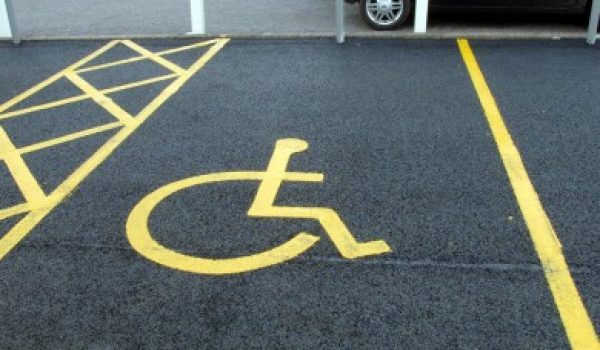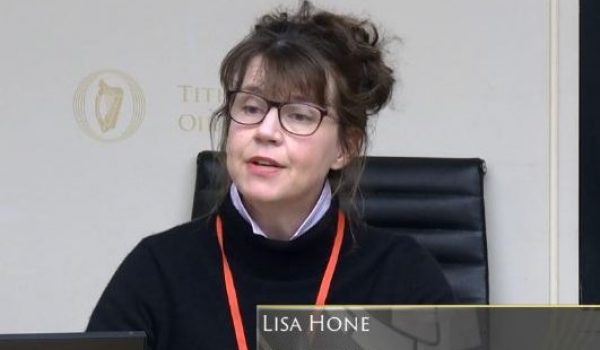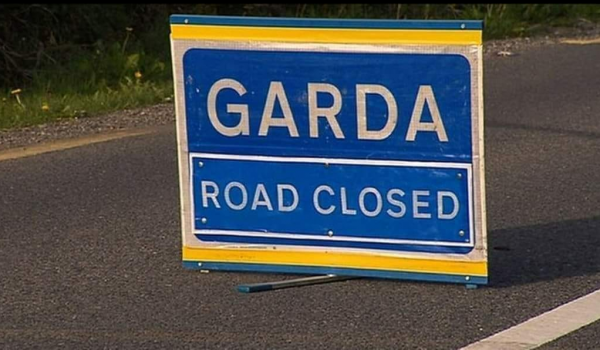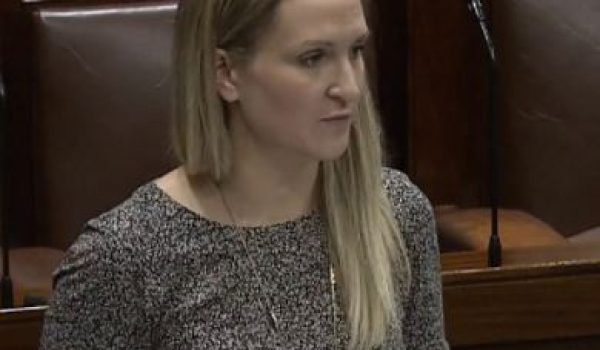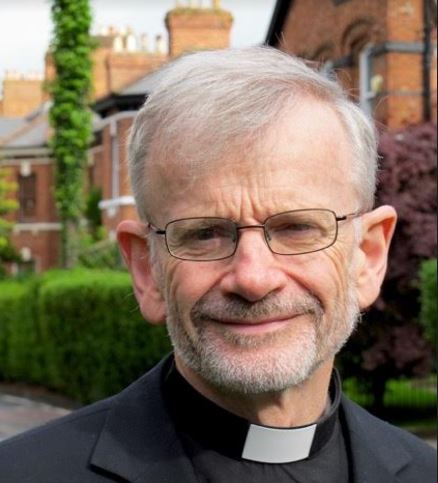
The Bishop of Raphoe has called on candidates in next week’s General Election to commit themselves to a number of principles.
Bishop Alan Mc Guckian chairs the Council for Justice and Peace of the Irish Catholic Bishops’ Conference.
In a statement this afternoon, he says while the Catholic Church does not support or align itself with any political party, there are a number of issues of justice and peace which all politicians seeking election should aim to address.
The first is Housing and Homelessness, including a call for the right to housing being inserted into the constitution and a plea for assurances that the provision of housing is not left solely to the market.
The second area of concern is Care for the Environment, including a demand that sectors such as agriculture are not disproportionately disadvantaged by new climate-related policies.
The third is Tolerance in our Society, which seeks the provision of the most humane solutions to the provision of accommodation for asylum seekers and refugees. In doing so, however, Bishop Mc Guckian says it’s important that local communities are consulted.
The final area of concern is Challenges facing young people, including measures to tackle poverty and ensure young workers are treated fairly.
Bishop Mc Guckian concludes the future Government must be steadfast in its commitment to ensuring the best outcome from Brexit for the whole island, and remain committed to peace in Northern Ireland.
***********************
Statement in full –
Social justice issues must be addressed by Election 2020 – Bishop Alan McGuckian
Bishop Alan McGuckian SJ, chairman of the Council for Justice and Peace of the Irish Catholic Bishops’ Conference has published the following statement in the context of General Election 2020.
The forthcoming election on 8 February offers an opportunity for people to exercise their democratic right to vote and to influence the make-up of the next Government of Ireland. Voting is the right and privilege of every responsible citizen. It is also the practical and concrete contribution that every voter can make to advance the fundamental politics of the common good. I therefore urge all citizens who can vote in these elections, to do so.
I also acknowledge that the vocation to political life is a difficult one and I urge everyone in the run-up to the election to make their views known in a manner which is respectful to all. Pope Francis has spoken of how political office and political responsibility ‘constantly challenge those called to the service of their country to make every effort to protect those who live there and to create the conditions for a worthy and just future. If exercised with basic respect for the life, freedom and dignity of persons, political life can indeed become an outstanding form of charity.’ All politicians must commit to prioritising the common good in any new Government, ahead of political spin, point-scoring or popularity.
As Chair of the Council for Justice and Peace of the Irish Catholic Bishops’ Conference, I wish to highlight a number of issues of concern which voters may wish to raise with candidates. The Catholic Church does not support or align itself with any political party, however the matters of justice and peace outlined below are important issues facing our society at this time which all politicians seeking election should aim to address, in particular:
· Housing and homelessness;
· Care for the environment;
· Tolerance in our society;
· Challenges facing young people.
Housing and Homelessness
The dignity which we recognise in every person must be reflected in the reality of life in our society. In 2018 the Bishops’ pastoral letter A Room at the Inn? highlighted some of the root causes of the housing crisis and offered solidarity with anyone experiencing homelessness. It also reiterated our belief that safe, affordable and appropriate housing is a human right. The pastoral letter proposed some key lines of action which should be addressed if the right to housing is to be ensured for all our citizens. These included:
– That the provision of housing is not left solely to the market and is not treated in the same way as any other commodity;
– That social housing provision is increased urgently and substantially;
– That immediate action is taken to increase the supply and reduce the price of housing;
– That fair pricing and security of tenure is secured in the private rental sector;
– That there is constitutional recognition of the right to housing.
A more comprehensive list of actions is included in the pastoral letter.
I note, with concern, some of the trends in our current housing crisis, including:
– Increasingly houses and homes are regarded as financial assets rather than essential needs. This way of thinking needs to be reversed to put the person, the family and the local community at the centre of housing policies;
– The growing phenomenon of family homelessness and the increasing number of children in temporary accommodation must be addressed as the distress, worry and trauma which these families and children endure is immense and will have lasting impact on their opportunities in life;
– Young people today find it so difficult to afford to rent or buy their own home and begin independent or family life. Left unchecked this could have serious implications for society;
– Over 10,000 people homeless in a society of relative economic prosperity is a scandal which cannot become a societal norm. It must be addressed with urgency by any incoming Government.
I echo Pope Francis in saying ‘There is no social or moral justification, no justification whatsoever, for lack of housing’.
Care for the Environment
We are all now aware of the increasing need for urgent action to protect our common home and preserve it for future generations. Recent extreme weather events signal to us the devastating impact of inaction. In our own country we are witnessing the loss of species and biodiversity which played their role in the beauty, richness and delicate balance of God’s creation. I urge politicians to:
– Prioritise immediate action on this issue which not only affects us nationally but has global consequences, unjustifiably hitting hardest those who contributed least to the problem in the developing world;
– Ensure that certain sectors of our society, such as the agricultural sector and those already experiencing poverty, are not disproportionately disadvantaged by climate-related policies;
– Ensure that environmental policies do not fall victim to easy wins or political expediency. Rather, they should be considered policies which will bring long-term benefits for integral ecology.
Policies to bring about radical climate action, while taking account of these challenges, for example, are possible. What is needed to achieve this is the political will to allocate time and resources to the issue and to learn from and share knowledge with other sectors of civil society who are also seeking to find sustainable long-term solutions.
Tolerance in our society
War, authoritarian regimes, economic deprivation and climate change continue to force people to take dangerous and arduous journeys seeking hope and a better life on farther shores. In Ireland we are not strangers to emigration which has for centuries dominated our history as a people. Our ancestors were grateful for opportunities to escape famine and destitution and to be allowed to contribute through our work, talents and values to the enhancement of the new societies to which we travelled. Refugees and asylum seekers now arrive on our shores. As Christians we should seek to welcome them as our sisters and brothers. I call on any newly elected Government to:
– Seek to provide the most humane solutions to the provision of accommodation for asylum seekers and refugees;
– Consult with and learn from local communities where accommodation has been put in place or is planned. Such consultation is crucial to gaining the trust of the local community and to finding appropriate long-term solutions that will lead to the integration and flourishing of those coming to our country seeking refuge. It will also ensure that concerns and questions which local communities legitimately have are not exploited by those seeking to sow division and fear.
Our Council, as well as my fellow bishops, have been concerned at the increase in incidents of intolerant and racist language and actions by a small minority in our country which has always been known for the warmth of its welcome. Our Governments have a responsibility here too. Intolerant language should have no place in political discourse.
Challenges facing young people
Young people today face so many challenges. In particular, I am concerned about the growing impact of so-called precarious work on young people and families. This often disproportionately impacts on young people who or socially or educationally disadvantaged and are vulnerable to exploitation by employers because of the limited options available to them. While more flexible working conditions can be a positive development for employees, when employers take advantage of workers by infringing on their right to fair contracts and entitlements through, among other schemes, bogus self-employment or extremely short-term contracts, it has negative consequences for the individual’s progress and development. It impacts on their financial security and their ability to buy a home or start a family. It also influences their own sense of accomplishment, purpose and value. The new Government should:
– Strengthen labour regulations and laws where necessary to ensure workers are treated equitably by employers;
– Develop a strategy to address other issues surrounding precarious work such as in-work poverty and access to social supports.
As the election draws near I pray for wisdom and right judgement for all our political leaders. The future Government must be firm in prioritising the common good. It must also be steadfast in its commitment to ensuring the best outcome from Brexit for the whole island and remain committed to peace in Northern Ireland and to developing and maintaining positive relationships with our neighbours in the UK and Europe.
- Tue, 23 Apr 2024
- (+353) 07491 25000
- (+353) 086 60 25000
